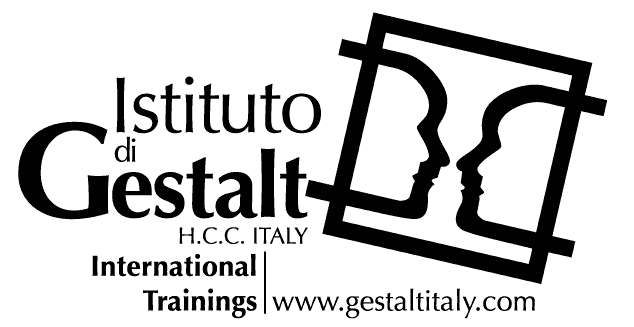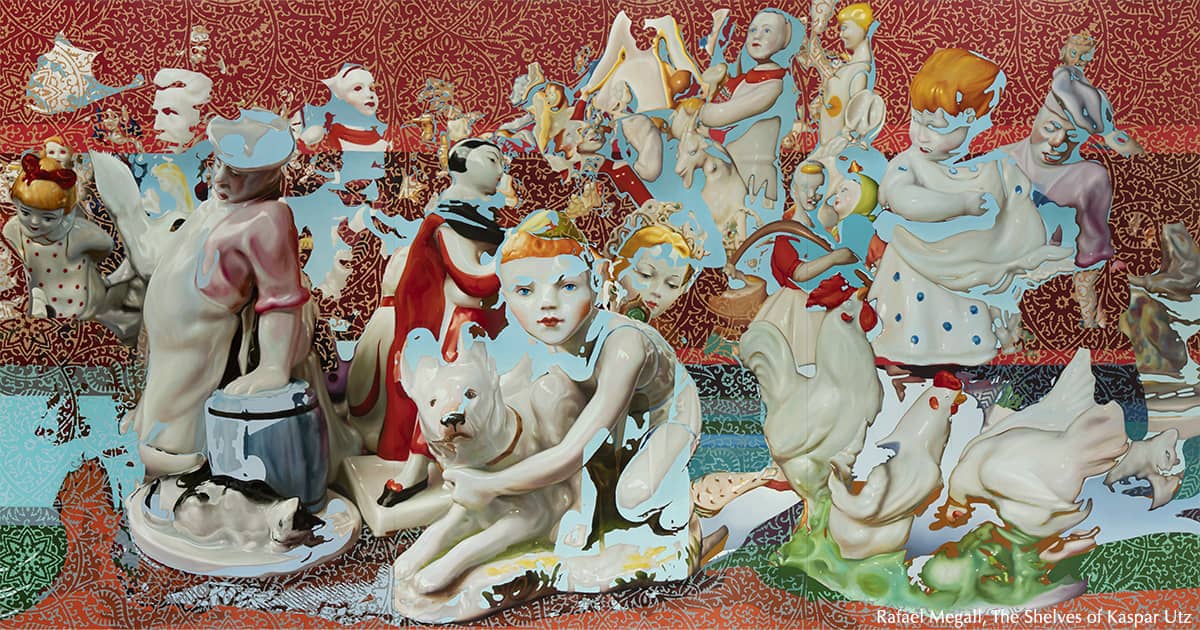Advanced program for psychotherapists in a post-pandemic world, who want to work for peace
with Margherita Spagnuolo Lobb, Stefania Benini, Rosanna Biasi, Dan Bloom, Scott Churchill, Lynne Jacobs, Frank M. Lachmann, Erving Polster, Rezeda Popova, Valeria Rubino, Pablo Herrera Salinas, Miriam Taylor, Wolfgang Tschacher, Gordon Wheeler
12 online seminars, video recordings available, for a total of 36 hours
You can watch them when you want using an e-learning platform
The pandemic and the war in Ukraine have radically affected our lives, our self-regulation in contacting the world, and our profession. As we were adjusting to the last stages of the pandemic, the war in Ukraine created a different world, where human rights can be stepped on even in so-called civilized countries. New power and economic boundaries are emerging. In addition to the risk to one’s own life, now even terror and poverty are in the foreground of our possibilities for the near future. In our therapeutic work we need to orient ourselves to this new trauma, move on from the shock and support our own and our patient’s resources, in order to discover new possible values of therapeutic care.
What sense of security and rootedness will we be able to draw on in order to construct safe ground on which to rest in our personal lives and base our clinical interventions?
The program addresses a new concept of psychopathology that goes beyond the individual suffering, using a situational perspective to include the complexity of therapeutic interventions while new conditions and scenarios emerge.
It provides concrete tools to consider and work with the complexity of psychotherapeutic interventions: the phenomenology of reciprocity, the experience of the ground, Aesthetic Relational Knowledge, the Dance of Reciprocity between therapist and client, the role of movement in recovering the vitality that accompanies the restoration of a sense of agency and the possibility of feeling fully present and creative in relationships.
Main trainer

Margherita Spagnuolo Lobb
Psychotherapist and researcher, international trainer, Director of the Istituto di Gestalt HCC Italy (Syracuse, Palermo and Milan). In her clinical work, she has developed the principles of Gestalt therapy with a hermeneutic way into a field-oriented, phenomenological and aesthetic approach. Her book The Now-for-Next in Psychotherapy is available in 8 languages. With Pietro Cavaleri, she has recently edited the book Psychopathology of the situation in Gestalt Therapy: a field oriented approach, upcoming at Routledge in its English edition. She received the Lifelong Achievement Award from the Association for the Advancement of Gestalt Therapy – AAGT (Toronto, Canada, August 2018).
Guest trainers
Each seminar includes a main three hour teaching part and a one hour dialogue with guest trainers.
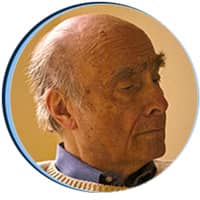
Erving Polster
Ph.D., is a veteran teacher of Gestalt therapy and the author of several books. His major interests have long been the transformation of psychotherapy as a curative process into psychotherapy as a communal source of orientation and guidance. In 1958, he became first faculty Chairman of the Gestalt Institute of Cleveland and remained in that position until 1973, when he and his wife, Miriam, formed the Gestalt Training Center-San Diego, where for 25 years they taught Gestalt therapy. His last book Enchantment and Gestalt Therapy (published by Routledge for the Gestalt Therapy Book Series) is a personal exploration of Erving Polster’s remarkable career, the value of the Gestalt approach, and the power of enchantment in psychotherapy.
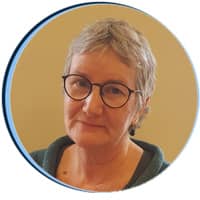
Miriam Taylor
UKCP registered Gestalt psychotherapist (non-clinical), supervisor and trainer. Having retired from clinical practice, Miriam now focuses on aspects of collective trauma, social justice issues and climate change. Based in embodied practice, her interest is in the formation of the traumatised relational field, leading to an ecological perspective. She teaches in the UK and internationally, and is on the Leadership Team of Relational Change. Publications include ‘Trauma Therapy and Clinical Practice’ (2014); ‘Deepening Trauma Practice’ (2021), and several peer reviewed and invited articles.

Frank M. Lachmann
Ph.D. is a teacher and supervisor and a member of the Founding Faculty of the Institute for the Psychoanalytic Study of Subjectivity, New York; and a Clinical Assistant Professor, in the NYU Postdoctoral Program in Psychotherapy and Psychoanalysis. He is author or co-author of more than 150 journal publications. He has been a co-author with Joe Lichtenberg and Jim Fosshage on six books, most recently Enlivening the Self (Routledge, 2015) and Narrative and Meaning, (Routledge, 2017). With Beatrice Beebe he wrote Infant Research and Adult Treatment: Co-Constructing Interactions (Analytic Press, 2002) The Origins of Attachment (Routledge, 2014) and The Mother-Infant Interaction Picture Book (with Beebe and Cohn, Norton, 2016). He is sole author of Transforming Aggression: Psychotherapy with the difficult-to-treat patient (Aronson, 2000) and Transforming Narcissism: Reflections on Empathy, Humor, and Expectations (Analytic Press, 2008). He is a member of the Council of the International Association of Psychoanalytic Self Psychology, and an honorary member of the Vienna Circle for Self Psychology, the William Alanson White Society, and the American Psychoanalytic Association.

Gordon Wheeler
Clinical psychologist with extensive experience in his field along clinical psychologist who pairs extensive clinical experience with a history of teaching and nonprofit consulting, on everything from mission development to strategic planning. The author of numerous books and articles, Gordon is noted for his work integrating the Gestalt tradition with relational and developmental psychology. His focus includes child and lifelong development and education, individualism, gender issues, and the dynamics of intimacy and shame. Gordon’s writings also have centered on values and cultural psychology, including multi-cultural issues and post-Holocaust studies. His work has been translated into more than a dozen languages.
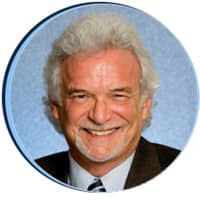
Scott D. Churchill
Professor of psychology at the University of Dallas, past president of the Society for Humanistic Psychology (Division 32), editor-in-chief of The Humanistic Psychologist(APA). Member of the executive boards for APA’s Division 32 (Humanistic Psychology) and Division 24 (Theoretical and Philosophical Psychology), he also serves on the editorial boards of Human Studies, Journal of Phenomenological Psychology, Qualitative Psychology, Journal of Theoretical and Philosophical Psychology, Qualitative Research in Psychology, Gestalt Therapy Book Series (Routledge), and others. He was trained in clinical psychology at Duquesne University where he was first exposed to Gestalt Therapy as a graduate student, with further application during his internship at the VA Hospital in Pittsburgh. After qualifying in 1981 for his license as a psychologist in Pennsylvania, he moved to Texas where he has been teaching phenomenology for the past 40 years.

Wolfgang Tschacher
Psychotherapist at the University Hospital of Psychiatry and Psychotherapy in Bern, where he founded the department of psychotherapy research, and at the FRIAS (Freiburg Institute for Advanced Studies) at the university of Freiburg, Germany. His main interests are in quantitative psychotherapy research, time-series methods and experimental psychopathology, with an emphasis on dynamical systems, complexity science, embodied cognition, and phenomena of cognitive self-organization. Former president of the European chapter of the Society for Psychotherapy Research (SPR). Member of the board of directors of the Society for Mind-Matter Research. Organizer of the series of “Herbstakademie” conferences on systems theory in psychology.

Lynne Jacobs
Ph.D., Both a gestalt therapist and a psychoanalyst, she is a co-founder of PGI. She is also a training and supervising analyst of the Institute of Contemporary Psychoanalysis (ICP) in Los Angeles. Lynne Jacobs teaches at ICP, and teaches gestalt therapists locally, nationally, and internationally. She has published numerous articles in both realms, and her most recent work is Relational Approaches in Gestalt Therapy (co-edited with Rich Hycner). Lynne Jacobs has a private practice in West Los Angeles.
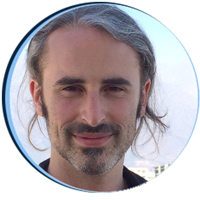
Pablo Herrera Salinas
Psychologist (Catholic University of Chile), Gestalt Psychotherapist (Gestalt Psychotherapy Center of Santiago). PhD in Psychotherapy Research (Catholic University of Chile; Heidelberg University). Teacher and researcher; has presented in scientific meetings in Chile, Argentina, Switzerland, France, Italy and U.S.A. In charge of research in the Gestalt Institute of Santiago.
Professor, clinical supervisor and researcher at the University of Chile, Santiago.
Main writing and research topics: Gestalt Therapy & Polarities, patient’s adherence to lifestyle changes, working with self-sabotage and resistance to change & Memory Reconsolidation in psychotherapy sessions.

Dan Bloom
Psychotherapist, supervisor, clinical trainer and writer in New York City. He studied with Laura Perls, Isadore From and Richard Kitzler. Dan teaches at the New York Institute for Gestalt Therapy, is guest and adjunct faculty at gestalt therapy institutes worldwide. He has spoken and given workshops at many international conferences. He leads webinars in gestalt therapy and phenomenology. He is past president and Fellow of NYIGT and past president of IAAGT. He is a member of EAGT. He is an associate editor of the Gestalt Review, a book review editor of Quaderni di Gestalt and a member of the Scientific Board of the Gestalt therapy Book Series. Dan is widely published.

Rosanna Biasi
Clinical Psychologist and Psychotherapist trained with the Istituto di Gestalt HCC. Master Degree in Clinical Neuropsychology of Acquired Cognitive Disorders from Padua University, Italy. She has been working in homes for the elderly since 1999, acting as a staff supervisor on end-of-life issues and management of behavioural disorders in elderly people with dementia. She is also a technical consultant for permanent working groups within the Vicenza health service unit that deal with the elderly and the disabled. In 2012, she became a member of staff for the first residential community in the Veneto region for patients with severe acquired brain injury. She has taught public courses for health care workers in Veneto.

Valeria Rubino
Psychiatrist and a psychotherapist at the Istituto di Gestalt HCC. She holds an advanced Master degree in Post-rationalist Cognitive Psychotherapy. She has worked as a researcher with the Neuroscience group of the Bari University Hospital, Italy, focusing on functional brain imaging. She worked for several years in the field of rehabilitation of psychiatric patients in residential homes. She currently works at the Mental Health Department of the Syracuse, Italy, health service unit and is a trainer at the Istituto di Gestalt HCC Italy.

Rezeda Popova
Clinical and a developmental psychologist, PhD. She is a founder and a director of Volga Region Institute for Gestalt Therapy, Russia, a member of the EAGT since 2010, a senior lecturer at Kazan State University, Institute of Psychology and Pedagogy. She has experience in long-term developmental clinical programs in Italy and the USA and has been working as an assistant in the two-year Developmental Somatic Program in New York City with Ruella Frank. She is the editor of the Russian translation of the books Robine J.-M. (Ed.) “Self – a Polyphony of Contemporary Gestalt Therapists.” and Robine J.-M.& Bowman Ch. (Eds.) “Psychopathology of Awareness”
Program
The program consists of two parts, each of 6 seminars, 18 hours each for a total of 36 hours, one devoted to the new concepts of psychopathology of the situation, the second dedicated to several psychopathological forms.
Each seminar includes a main three hour teaching part, conducted by Margherita Spagnuolo Lobb, and a one hour dialogue with guest trainers.
First part: Working on the Ground, on Aesthetics, and on the “Dance”
Seminar 1
Beyond individual psychopathology – The phenomenology of reciprocity
in dialogue with Erving Polster
Recording available, 3 hours
Seminar 2
The ground experience of clinical sufferings: psychopathological grounds
in dialogue with Gordon Wheeler
Recording available, 3 hours
Seminar 3
The therapist’s intuition of the field (Aesthetic Relational Knowledge)
in dialogue with Scott Churchill
Recording available, 3 hours
Seminar 4
The “dance steps” model: reciprocity between therapist and client
in dialogue with Dan Bloom
Recording available, 3 hours
Seminar 5
Working with the complexity of the therapeutic contact
in dialogue with Wolfgang Tschacher
Recording available, 3 hours
Seminar 6
Forms of vitality in psychopathology: situations of anxiety and panic attacks
in dialogue with Rosanna Biasi
Recording available, 3 hours
Second part: Forms of vitality in psychopathology, clinical work on reciprocity
Seminar 7
Forms of vitality in psychopathology: narcissistic situations
Recording available, 3 hours
Seminar 8
Forms of vitality in psychopathology: borderline situations
in dialogue with Lynne Jacobs
Recording available, 3 hours
Seminar 9
Forms of vitality in psychopathology: depressive situations
in dialogue with Pablo Herrera Salinas
Recording available, 3 hours
Seminar 10
Forms of vitality in psychopathology: psychotic situations
in dialogue with Rezeda Popova
Recording available, 3 hours
Seminar 11
Forms of vitality in psychopathology: post-traumatic situations
in dialogue with Miriam Taylor
Recording available, 3 hours
Seminar 12
Forms of vitality in psychopathology: dissociative situations
in dialogue with Valeria Rubino
Recording available, 3 hours
Language
English
Participants
Previous training in Gestalt therapy and a minimum of clinical experience is required.
Diploma
A diploma will be provided to psychotherapists who complete all video sections.
How to see the videos on-demand
After the registration and payment your will receive an email with instruction to access the recordings of the seminar using an e-learning platform.
Information
Please contact us at [email protected]
Registration
First part
The total cost for the first part (seminars 1 to 6) is:
480 Euro
Registration only to the first part
Second part
The total cost for the second part (seminars 7 to 12) is:
480 Euro
Registration only to the second part
Whole course – Discounted Registration
The total cost for the whole course (12 seminars) is 850 Euro.
You can watch the seminars when you want, using an e-learning platform. You can pause and restart them in each moment.
You can pay with your credit/debit card (Visa, Mastercard, American Express,…).
If you wish, you can use Apple Pay, Google Pay, Bancontact, EPS, Giropay, iDeal, Przelewy24.
After payment we will use the order data to issue an invoice. Take care to insert your email, name, address correctly.
For any assistance after-order write to [email protected] attaching the order confirmation within 24 hours.
You will receive an email with instructions to access the recordings of the seminars.
